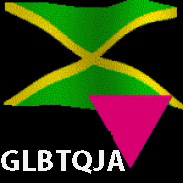
For Immediate Release Contact
December 15, 2011 Mark Aurigemma; 646-270-9451; mark@aucomm.net
Pedro Goicochea; 415-490-8350; pgoicochea@gladstone.ucsf.edu
FDA ASKED TO APPROVE NEW HIV PREVENTION METHOD, PRE-EXPOSURE PROPHYLAXIS (PrEP)
An application from Gilead Sciences, Inc. has been filed with the U.S. Food and Drug Administration toapprove an HIV antiretroviral therapy to reduce the risk of HIV infection among uninfected men who have sex with men (MSM) and heterosexual women and men. The application to approve the new HIV prevention method called pre-exposure prophylaxis, or PrEP, is based partly on data from the Global iPrEx study, the first human efficacy study to prove that PrEP reduces HIV infection risk inpeople (http://www.iprexnews.com).
The PrEP drug is a single-tablet once-daily combination of emtricitabine (FTC 200 mg) and tenofovir (TDF 300 mg), marketed under the brand name Truvada®. The iPrEx study found that MSM who were prescribed a single daily FTC/TDF tablet experienced an average of44% fewer HIV infections than those who received a placebo pill. Among a study sub-set those who took the tablet frequently enough for drug to be detected in their bodies, the rate of protection against HIVinfection was more than 90%. All participants in the iPrEx study received condoms and comprehensive HIV prevention support. The HIV prevention benefits of PrEP were in addition to the benefits obtained from other prevention methods.
iPrEx study results were first reported in the New England Journal of Medicine in November, 2010 (http://www.nejm.org/doi/pdf/10.1056/NEJMoa1011205).
Data supporting the use of PrEP to reduce HIV infection risk in heterosexual men and women were provided by the Partners PrEP study, which involved 4758 HIV serodiscordant couples (couples in which one partner is HIV-infected and the other is not) at nine trial sites in Kenya and Uganda. Both the iPrEx and Partners PrEP studies found that PrEP is safe, with very low levels of sideeffects and limited risk of HIV drug resistance.
“With 2.6 million new HIV infections occurring each year, and fewer than half of people with HIV receiving treatment, the world needs new and effective HIV prevention strategies,” said iPrEx Protocol Chair Robert Grant, MD, MPH of the Gladstone Institutes and the University of California at San Francisco. “Men who have sex with men have borne an enormous burden in this epidemic, and have also beenconsistently at the head of efforts to help reverse it. The 2,499 men and transgender women who participated in the iPrEx study Brazil, Ecuador, Peru, South Africa, Thailand and the United States have made an historic contribution to the effort to help end this epidemic.”
“The data are clearly strong enough to warrant FDA approval of Truvada for HIV prevention,” said Dana Van Gorder, Executive Director of the AIDS advocacy group Project Inform. “The decision about whether to approve Truvada for prevention should be made with compassion, based on science rather than ideology, and without judgment regarding the behaviors of people at risk for HIV. We firmly believe in the right of people at risk of becoming infected with HIV to choose PrEP, which has been shown to be effective when used with condoms, as an additional method of HIV prevention.”

An Open Label Extension of the iPrEx study (iPrEx OLE; http://www.iprexole.com/index.html) is currently underway at 11 clinical trials sites in the United States, Peru, Ecuador, Brazil, South Africa and Thailand. iPrEx OLE is designed to provide additional information about the safety of PrEP and the behavior of people taking PrEP over a longer term.
The iPrEx study was sponsored by the U.S. National Institutes of Health (NIH) through a grant to the Gladstone Institutes, a non-profit independent research organization affiliated with the University of California at San Francisco. Additional support for iPrEx was provided by the Bill & Melinda Gates Foundation.
# # #
